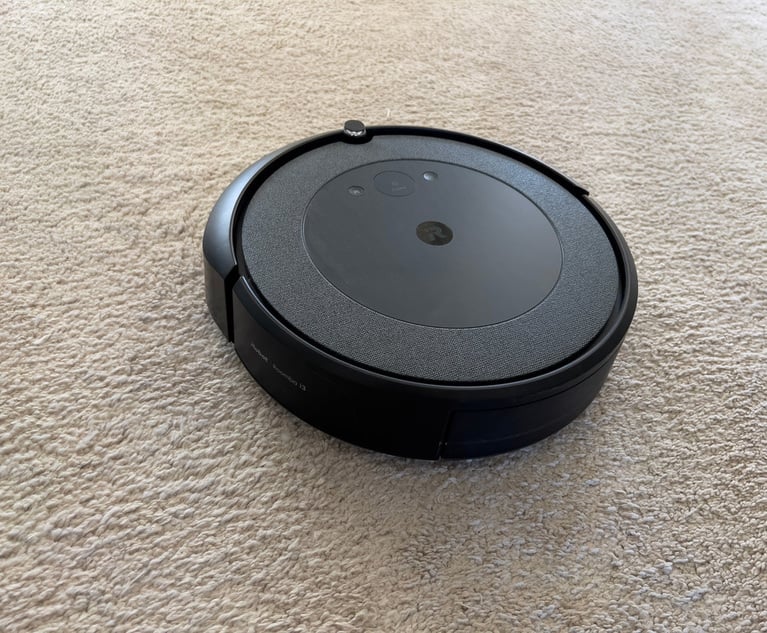When Ethical Obligations Clash With Patent Application Quotas
What is an in-house counsel to do when they have to meet a patent quota but have a duty to protect patent quality?
August 03, 2017 at 06:45 PM
6 minute read
When an invention disclosure submission crosses the desk of an in-house intellectual property attorney, the next step is often to determine if the product is patentable and, if it is, whether a patent application should be filed. But sometimes there's another consideration—patent application quotas for legal departments. For one former in-house patent attorney from cosmetics company L'Oréal USA Inc., this was an added consideration that allegedly got him fired.
Performance metrics for in-house counsel around patent applications aren't as rare as some might expect, which may raise the question of how to balance quotas with professional ethical obligations, according to in-house and outside IP counsel.
In 2014, L'Oréal SA had an annual global quota of 500 patent applications and a quota of 40 patent applications for its U.S. research division in Clark, New Jersey, according to a 2015 lawsuit filed by Steven Trzaska, the company's former vice president and head of patents and business development. The whistleblower lawsuit, filed in the U.S. District Court for the District of New Jersey, claimed that Trzaska was fired after advising his superiors that he would not, for the sake of meeting the quota, violate his ethical obligations as an attorney by filing applications for products that were not patentable.
This content has been archived. It is available through our partners, LexisNexis® and Bloomberg Law.
To view this content, please continue to their sites.
Not a Lexis Subscriber?
Subscribe Now
Not a Bloomberg Law Subscriber?
Subscribe Now
NOT FOR REPRINT
© 2025 ALM Global, LLC, All Rights Reserved. Request academic re-use from www.copyright.com. All other uses, submit a request to [email protected]. For more information visit Asset & Logo Licensing.
You Might Like
View All
Private Equity-Backed Medical Imaging Chain Hires CLO, Continuing C-Suite Makeover


Apple GC’s Compensation Flat Again in 2024, but She Might Snag No. 1 Spot on Top-Paid List Anyway

Trending Stories
- 1Pa. Superior Court: Sorority's Interview Notes Not Shielded From Discovery in Lawsuit Over Student's Death
- 2Kraken’s Chief Legal Officer Exits, Eyes Role in Trump Administration
- 3DOT Nominee Duffy Pledges Safety, Faster Infrastructure Spending in Confirmation Hearing
- 4'Younger and Invigorated Bench': Biden's Legacy in New Jersey Federal Court
- 5'Every Single Judge on Board': First-Impression Case Revived
Who Got The Work
J. Brugh Lower of Gibbons has entered an appearance for industrial equipment supplier Devco Corporation in a pending trademark infringement lawsuit. The suit, accusing the defendant of selling knock-off Graco products, was filed Dec. 18 in New Jersey District Court by Rivkin Radler on behalf of Graco Inc. and Graco Minnesota. The case, assigned to U.S. District Judge Zahid N. Quraishi, is 3:24-cv-11294, Graco Inc. et al v. Devco Corporation.
Who Got The Work
Rebecca Maller-Stein and Kent A. Yalowitz of Arnold & Porter Kaye Scholer have entered their appearances for Hanaco Venture Capital and its executives, Lior Prosor and David Frankel, in a pending securities lawsuit. The action, filed on Dec. 24 in New York Southern District Court by Zell, Aron & Co. on behalf of Goldeneye Advisors, accuses the defendants of negligently and fraudulently managing the plaintiff's $1 million investment. The case, assigned to U.S. District Judge Vernon S. Broderick, is 1:24-cv-09918, Goldeneye Advisors, LLC v. Hanaco Venture Capital, Ltd. et al.
Who Got The Work
Attorneys from A&O Shearman has stepped in as defense counsel for Toronto-Dominion Bank and other defendants in a pending securities class action. The suit, filed Dec. 11 in New York Southern District Court by Bleichmar Fonti & Auld, accuses the defendants of concealing the bank's 'pervasive' deficiencies in regards to its compliance with the Bank Secrecy Act and the quality of its anti-money laundering controls. The case, assigned to U.S. District Judge Arun Subramanian, is 1:24-cv-09445, Gonzalez v. The Toronto-Dominion Bank et al.
Who Got The Work
Crown Castle International, a Pennsylvania company providing shared communications infrastructure, has turned to Luke D. Wolf of Gordon Rees Scully Mansukhani to fend off a pending breach-of-contract lawsuit. The court action, filed Nov. 25 in Michigan Eastern District Court by Hooper Hathaway PC on behalf of The Town Residences LLC, accuses Crown Castle of failing to transfer approximately $30,000 in utility payments from T-Mobile in breach of a roof-top lease and assignment agreement. The case, assigned to U.S. District Judge Susan K. Declercq, is 2:24-cv-13131, The Town Residences LLC v. T-Mobile US, Inc. et al.
Who Got The Work
Wilfred P. Coronato and Daniel M. Schwartz of McCarter & English have stepped in as defense counsel to Electrolux Home Products Inc. in a pending product liability lawsuit. The court action, filed Nov. 26 in New York Eastern District Court by Poulos Lopiccolo PC and Nagel Rice LLP on behalf of David Stern, alleges that the defendant's refrigerators’ drawers and shelving repeatedly break and fall apart within months after purchase. The case, assigned to U.S. District Judge Joan M. Azrack, is 2:24-cv-08204, Stern v. Electrolux Home Products, Inc.
Featured Firms
Law Offices of Gary Martin Hays & Associates, P.C.
(470) 294-1674
Law Offices of Mark E. Salomone
(857) 444-6468
Smith & Hassler
(713) 739-1250






